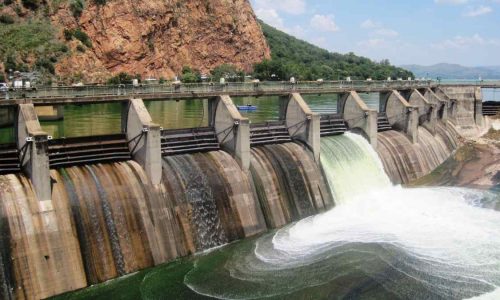PT Pertamina Geothermal Energy (PGE), a subsidiary of state-owned oil and gas giant company PT Pertamina, expects to earn up to IDR 9.78 trillion (US$ 657.92 million) in fresh funds from its Initial Public Offering (IPO) in early February.
Established in 2006, PGE focuses on the development and operation of geothermal energy projects in Indonesia. The company was established to tap into the country’s rich geothermal resources, which are among the largest in the world. It also aims to contribute to Indonesia’s energy mix and meet the growing demand for sustainable and clean energy sources.
IPO funds for business developments
The book-building phase for its IPO will start from February 1-9, 2023. PGE will debut on the Indonesia Stock Exchange (IDX) by offering 10.35 billion shares. Through this corporate action, the company targets to acquire between IDR 8.48 trillion and IDR 9.78 trillion in fresh funds.
The IPO will include 25% of PGE’s issued and paid-up capital after going public. The price of each share is estimated to range between IDR 820 and IDR 945. The primary public offering will take place on February 20-22, 2023, following the receipt of an effective statement on February 16, 2023. Meanwhile, the listing on the IDX is scheduled for February 24, 2023.
“This IPO marks our confidence in geothermal potential in Indonesia, where 40% of the world’s geothermal energy is located. Indonesia develops geothermal beyond its current installed capacity,” PGE CEO Ahmad Yuniarto told a press conference on February 1, 2023.
He explained that 85% of the IPO funds would be used for business development until 2025. This development consists of 55% for Capital expenditures (Capex) or investments to increase capacity in the existing geothermal operating area through conventional development and utilization of co-generation technology to meet the additional demand from existing customers.
The remaining part of the development will primarily be for the Lahendong, Hululais, Lumut Balai and Margabayur, Mount Way Panas, Penuh River and Mount Sibayak – Mount Sinabung geothermal operating areas.
The company will also use 33% of the Capex to increase capacity in its current operational geothermal operating areas. This development will cover geothermal operating areas of Lumut Balai and Margabayur, Hululais, Gunung Way Panas and Kamojang – Darajat.
PGE will also use 12% of the fund to develop digital, analytical and reservoir management capabilities to support production, operation & maintenance excellence.
The remaining 15%, or around US$ 100 million, will be used for payment of a portion of the Facilities Agreement dated June 23, 2021, between the Company and the Mandated Lead Arrangers, Initial Syndicate Lenders and PT Bank Mandiri Tbk (BMRI) as the Facility Agent.
Attractive for investors
Agus Pramono, Head of Research at Aldiracita Securities, sees that in terms of value, the PGE’s IPO can attract institutional investors to participate.
“This market cap is big. Institutions can enter [the market] because the liquidity is there,” he said.
Agus also considers PGE to be involved in an attractive sector. Geothermal can be seen as green energy, which may still attract investor interest. However, it also depends on market conditions and valuation. He also assessed that the depressed market situation at the beginning of 2023, will make investors wait and see.
Risks of geothermal business
There are several risks associated with PGE business in the geothermal energy sector. Some of the key risks include:
- Market risks: The geothermal energy market is competitive, and PGE may face challenges in maintaining its market share and profitability. The company may also be exposed to price volatility in the market.
- Technological challenges: PGE faces challenges in drilling and tapping into geothermal resources effectively and efficiently.
- Environmental concerns: Geothermal energy production may result in some environmental impacts such as air and water pollution, soil erosion and seismic activity. PGE must carefully manage these risks.
- Competition for resources: PGE faces competition for geothermal resources from other energy companies and industries, such as tourism and agriculture that also require access to water sources.










